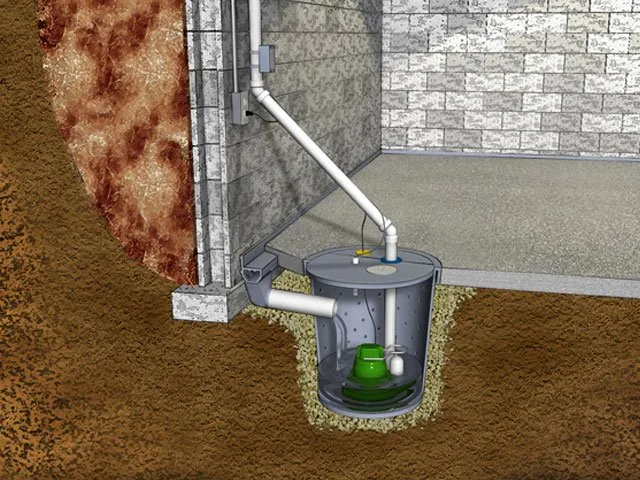Recognizing the Trick Parts of Effective Water Purification Solutions

Significance of Water Filtration Systems
Water filtration systems play a vital role in making sure accessibility to tidy and risk-free drinking water by successfully getting rid of contaminants and impurities. These systems are vital in attending to the growing issues over water top quality and the possible wellness dangers related to eating contaminated water. By making use of various purification devices such as reverse osmosis, turned on carbon, and UV sterilization, water purification systems can efficiently get rid of harmful compounds like bacteria, viruses, heavy steels, and chemicals from the water.
In addition, water filtration systems assist to boost the taste and odor of water by eliminating chlorine, sediments, and other pollutants that can affect its high quality. Water Filtration Systems. This enhancement in water high quality not only makes it much more tasty however additionally encourages individuals to consume alcohol a sufficient amount of water daily, advertising better hydration and overall health
Types of Filtration Elements

Physical filters are developed to literally strain out pollutants from the water. These filters can be made of products like ceramic, carbon, or also sand, and they function by capturing fragments bigger than the filter's pores as water passes with.
Chemical filters use numerous chemical processes to remove contaminants from the water. Examples include turned on carbon filters, which adsorb impurities, and turn around osmosis membranes, which use stress to separate pollutants from the water.
Organic filters use living organisms like algae or bacteria to break down raw material and pollutants in the water. These filters are commonly used in wastewater treatment plants or all-natural water filtration systems.
Recognizing the various types of filtering components is important for choosing the most appropriate water filtering system for certain filtration demands.
Function of Sediment Filters
Sediment filters play a critical function in water filtering systems by properly capturing solid fragments suspended in the water. These filters are typically the initial line of defense in a purification system, removing bigger particles such as sand, silt, dust, and rust prior to the water moves with finer filtration phases. By capturing these debris, the filters prevent them from getting to downstream parts, therefore expanding the lifespan and efficiency of the entire system.
The function of sediment filters is important in maintaining water high quality and securing delicate devices from damages brought on by particles. Furthermore, by getting rid of noticeable particles, sediment filters improve the clearness and taste of the water. Regularly cleansing or changing sediment filters is vital to ensure ideal performance. Neglecting this maintenance can lead to clogging, reduced water flow, and jeopardized filtration effectiveness. In general, sediment filters are indispensable components that add significantly to the effectiveness of water purification systems.
Function of Turned On Carbon Filters
Playing an essential duty in water purification systems, turned on carbon filters contribute in removing contaminations and impurities from the supply of water. These filters are created to adsorb and catch a wide variety of toxins, including chlorine, volatile natural substances (VOCs), chemicals, and herbicides. The triggered carbon product has a big surface area, permitting the efficient capturing of contaminants via a process called adsorption. As water passes through the filter, the triggered carbon holds and attracts onto the impurities, guaranteeing that the water that comes out on the other side is cleaner and more secure for consumption.
Turned on Visit This Link carbon filters are extremely effective at boosting the taste and odor of water by lowering chemicals that can impact its quality. They are likewise capable of removing particular heavy steels like lead and mercury. Additionally, these filters can help protect against the build-up of microorganisms and algae in water, more improving its overall high quality. Because of their adaptability and reliability, turned on carbon filters are a crucial component in making certain that water is cleansed to the highest possible standards prior to reaching consumers.
Comprehending Reverse Osmosis Solutions
Reverse osmosis systems are innovative water filtration systems that use an innovative procedure to eliminate pollutants and impurities from drinking water. These systems work by applying pressure to the water, forcing it with a semi-permeable membrane layer. This membrane functions as an obstacle, enabling just pure water particles to travel through, while obstructing larger molecules such as minerals, chemicals, and other pollutants. Consequently, the water that appears beyond is considerably cleaner and much safer for consumption.
Additionally, reverse osmosis systems are relatively low-maintenance and can be mounted under the sink or in a main filtering system, offering hassle-free accessibility to tidy water throughout the household. Overall, understanding how reverse osmosis systems function can help people make informed decisions about their water purification demands.
Final Thought
In conclusion, reliable water filtering systems are vital for making sure tidy and risk-free alcohol consumption water. By understanding the feature and function of each look at here element, individuals can make informed Bonuses choices when picking a water filtration system.
Water filtration systems play a critical duty in making certain accessibility to clean and secure alcohol consumption water by successfully getting rid of contaminations and impurities. By utilizing numerous filtering mechanisms such as reverse osmosis, activated carbon, and UV sanitation, water purification systems can successfully remove damaging substances like microorganisms, infections, heavy steels, and chemicals from the water supply.
Debris filters play an important function in water filtration systems by effectively capturing strong fragments suspended in the water (Well Pump Replacement).Playing a critical function in water filtering systems, activated carbon filters are critical in eliminating pollutants and impurities from the water supply.Reverse osmosis systems are sophisticated water filtration systems that utilize an innovative process to eliminate contaminants and impurities from alcohol consumption water